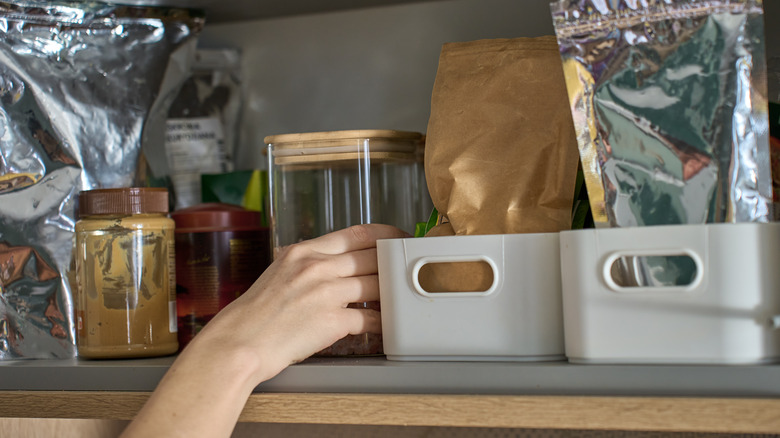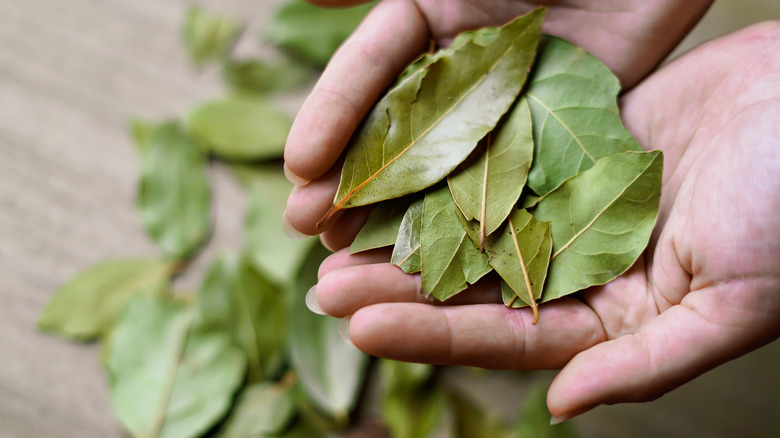Homeowners Urged To Put Dry Bay Leaves In The Pantry — And It's Not As Strange As It Sounds
Your pantry is home to many dried foods, which can make it a prime target for pests. Sometimes when you bring food home from the store, it is already infested with bugs. Other times, if food is left sitting in the pantry for a long time, it can become prone to pest infestation. There may be a handy pantry staple you already have that can keep pests away, though. Many homeowners are urged to put dry bay leaves in their pantry. This is because bay leaves can aid in deterring pantry pests in dried goods like grains, flour, and rice. The pests bay leaves ward away include weevils, flour beetles, and mealworms.
According to scientific evidence, bay leaves are considered both an insect repellent and an insecticide. Their scent is strong, and most pantry pests don't like it, so they stay away. There are many pantry pests to watch out for, and bay leaves will deter the ones mentioned above. Putting either fresh or dried bay leaves in the pantry doesn't matter; both emit the scent eucalyptol, which is what keeps the pantry pests away. While it's a powerful and unpleasant scent to insects, the smell doesn't transfer into any of your dried foods.
How to use bay leaves in your pantry (and other ways to prevent pantry pests)
Place bay leaves wherever you feel necessary in the pantry to keep mealworms and weevils away, such as on the shelves or in the containers of dried food — just remember to remove them before cooking. It's important to note that if you have already detected pantry pests, bay leaves may not be effective at getting rid of them. They are more of a preventative measure to keep certain pests from being drawn to your pantry.
Other steps you can take to prevent a pantry-pest infestation include keeping your kitchen, especially the pantry, clean so there are no food spills or crumbs that could attract pests. Wipe down shelves at least once a month, more often if you're using the pantry frequently. If you have detected any pests, throw out all contaminated (and possibly contaminated) foods immediately. As an extra precaution, periodically assess and find things to throw away in your pantry that you no longer have a use for. Lastly, store all dried foods in airtight containers with lids (not their bags) to keep them as secure as possible. Keeping your pantry organized helps you keep track of what needs to be kept and what needs to be thrown out. It's a great way to stay ahead of a pest infestation.

